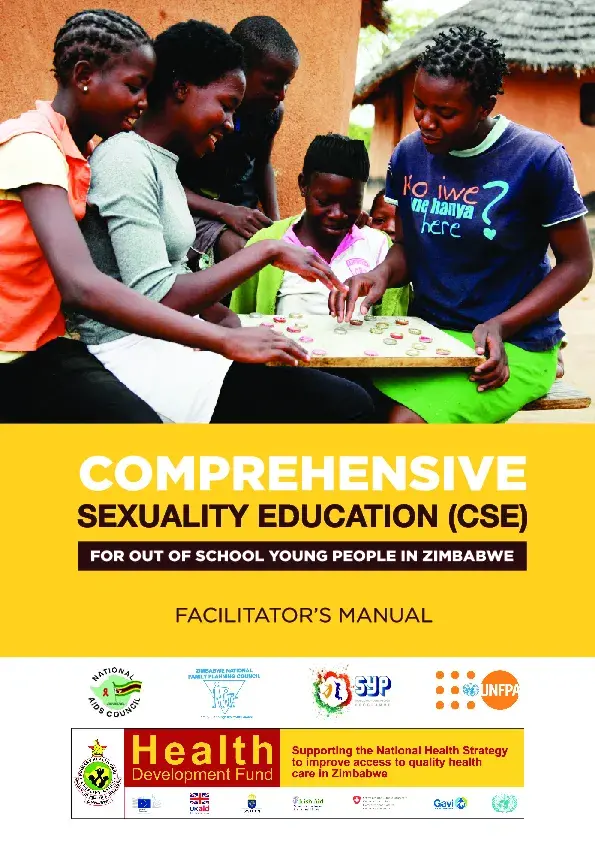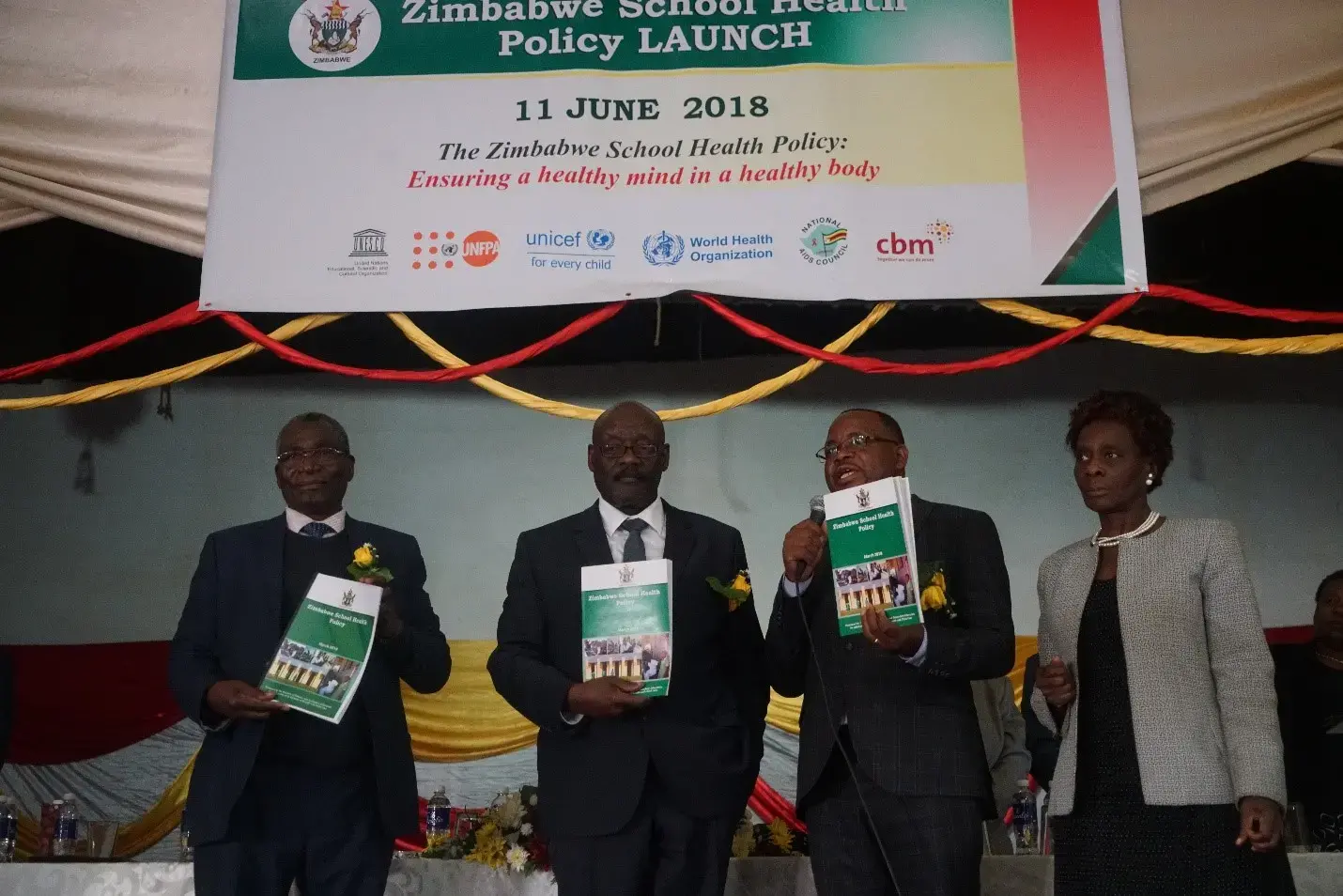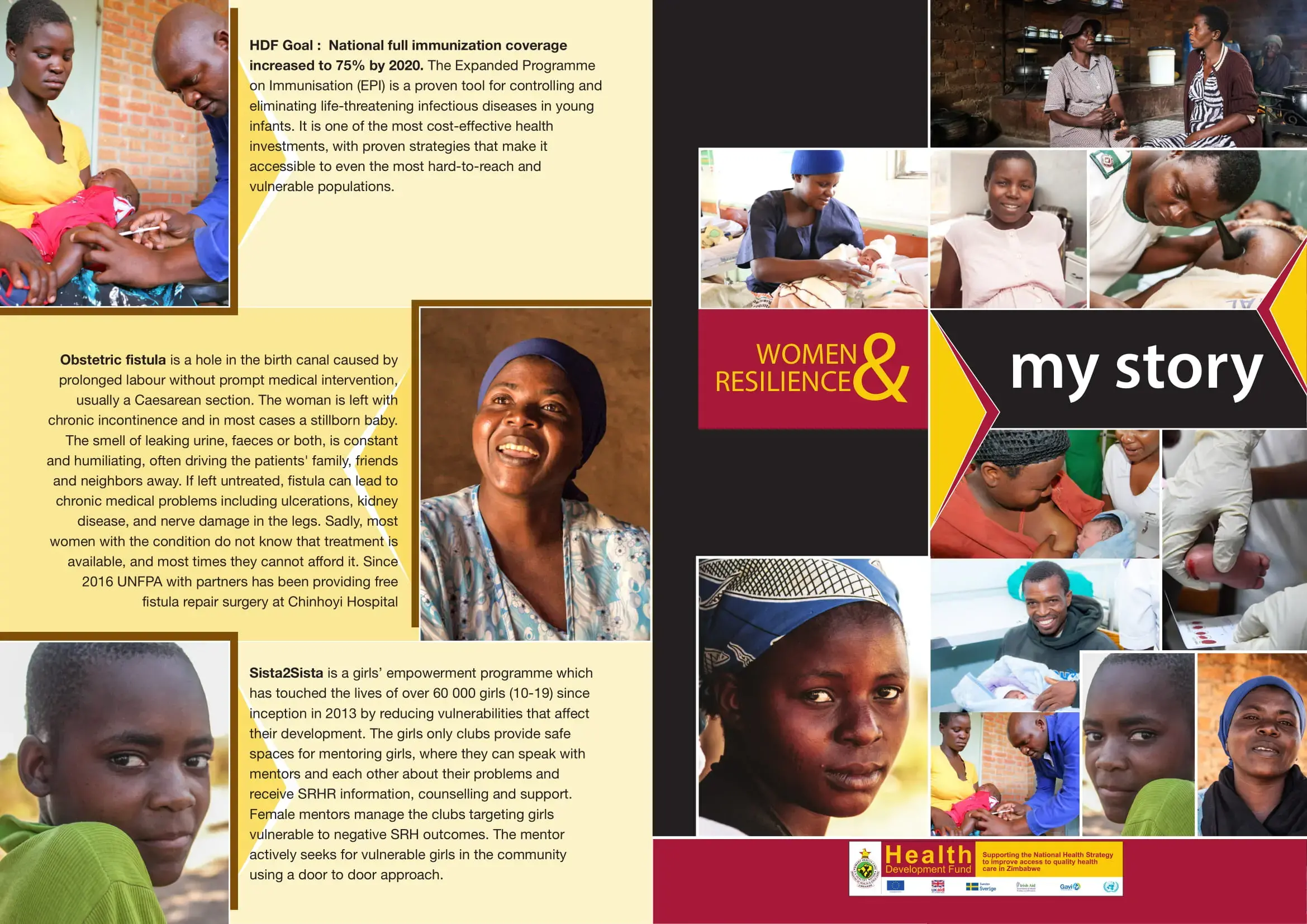Ministry of Health and Child Care (MoHCC), Ministry of Women Affairs and Youth (MoWAY), Zimbabwe National Family Planning Council (ZNFPC) and National AIDS Council (NAC) and other partners are contributing to the Health Development Fund (HDF) 2016-2020. With support from DFID, Irish Aid and the Government of Sweden, this programme is implemented within the context of the National Health Sector Strategy (2016-2020).
This programme aims to increase knowledge and utilisation of integrated HIV prevention, SRHR and SGBV services. One of the interventions for young people is encapsulated in this manual that focuses on out of school youths in communities teaching them about sexuality, reproductive health, gender, rights, services and related life skills aligned to the National Adolescent and Youth Sexual and Reproductive Health (ASRH) strategy II 2016-2020.
The methodology brings out of school youths together through facilitating group meetings. These group meetings provide an environment for open dialogue and communication on issues affecting youth today; the growing numbers of teenage pregnancies, school dropouts, drug abuse, social, sexual and reproductive health problems, sexual gender based violence, STIs and HIV. The group meetings will provide a social support network within their own community that is likely to extend beyond the lifespan of their group.
Community based youth leaders or mentors will deliver the manual as the main resource to engage young people by providing them with correct information, challenging them to look at their own attitudes and behaviours, helping them to develop the skills they need to adopt health behaviours and to remain safe. While it is recognised that changing an individual’s behaviour remains the responsibility of that individual, creating an environment that supports and encourages positive behaviour change requires effort and commitment from a multitude of players. The Community Health Workers (CHWs) as mentors in the CSE groups are key agents in this endeavour. However, the group members are also key contributors to building change in their own and their fellow group members’ lives. Providing information and education is only one component of infl uencing change of an individual’s behaviour.
The mentors, working with the support and under the guidance of implementing partner organisations, are aware of this limitation and as a result will draw on the expertise and skills of other organisations located within their communities. These organisations, from faith-based entities to health facilities, to law enforcement agencies and support groups, are equipped with diverse skill-sets to assist individuals and communities in changing their behaviour. As a result, group members who require information beyond the expertise of the mentor will be referred to these organisations for services.
Working together, these organisations and CBWs will strive to improve health outcomes for young people through CSE. In that vein, we would like to thank individuals and organisations that have contributed in any way to the development of this guide.
This guide was adapted to Zimbabwe’s context from the CSE for out of school young people in East and Southern Africa facilitators guide. This will be used as part of the demand generation tools for community health systems as of 2018.





